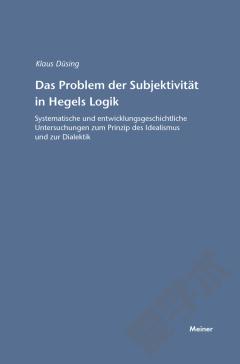The Secret of Hegel —— Being the Hegelian System in Origin, Principle, Form, and Matter
-----
IN intruding on the Public with a work on Hegel, the first duty that seems to offer, is, to come to an understanding with it as regards the prepossessions which commonly obtain, it is to be feared, not only as against the particular writer named, but as against the whole body of what is called German Philosophy. It will be readily admitted, to be sure, by all from whom the admission is of any value, that just in proportion to the relative knowledge of the individual is his per ception as well of the relative ignorance of the com munity. But this — general ignorance, to wit — were no dispensation from the duty indicated: for just in such circumstances is it that there are prepossessions, that there are — in the strict sense of the word — prejudices; and prejudices constitute, here as everywhere, that preliminary obstacle of natural error which requires removal before any settlement of rational truth can possibly be effected. We cannot pretend, however, to reach all the prejudices concerned; for, thought in this connexion being still so incomplete, as usual, the variety of opinion passes into the indefinite; night reigns — a night peopled by our own fancies — and distinct enu meration becomes impossible.
{{comment.content}}








 京公网安备 11010802027623号
京公网安备 11010802027623号